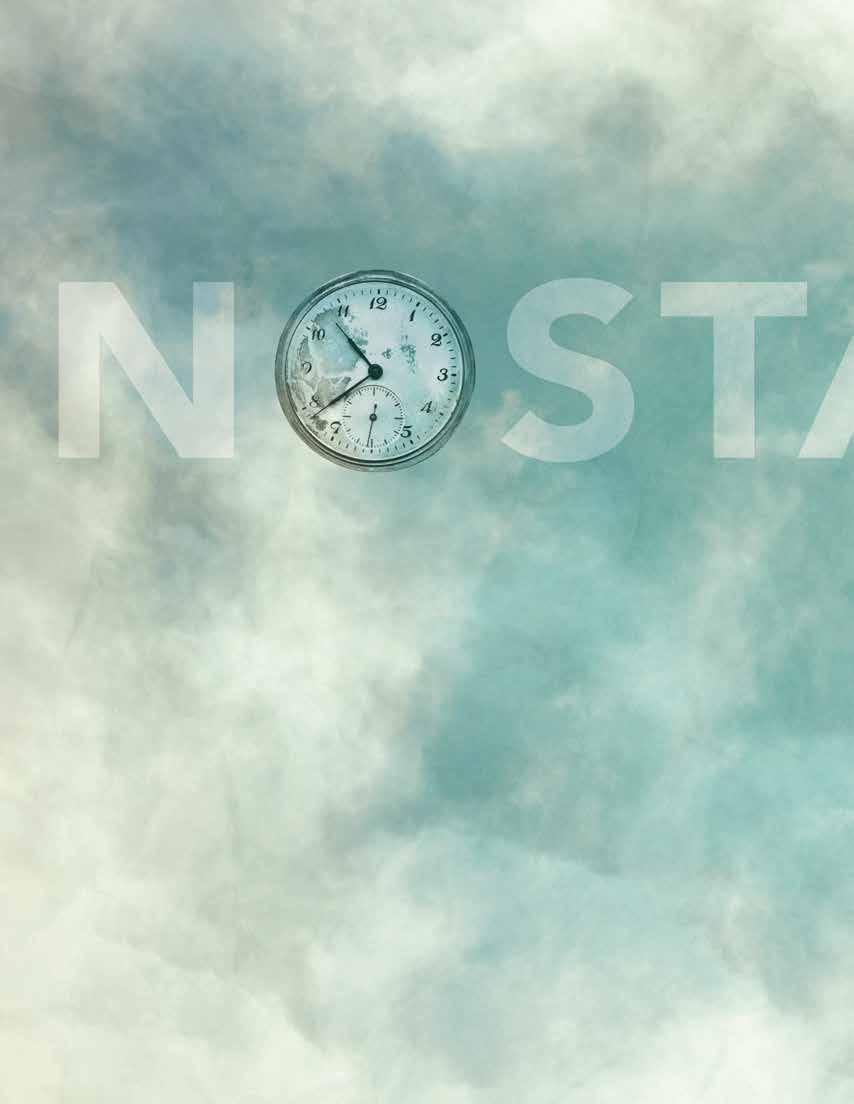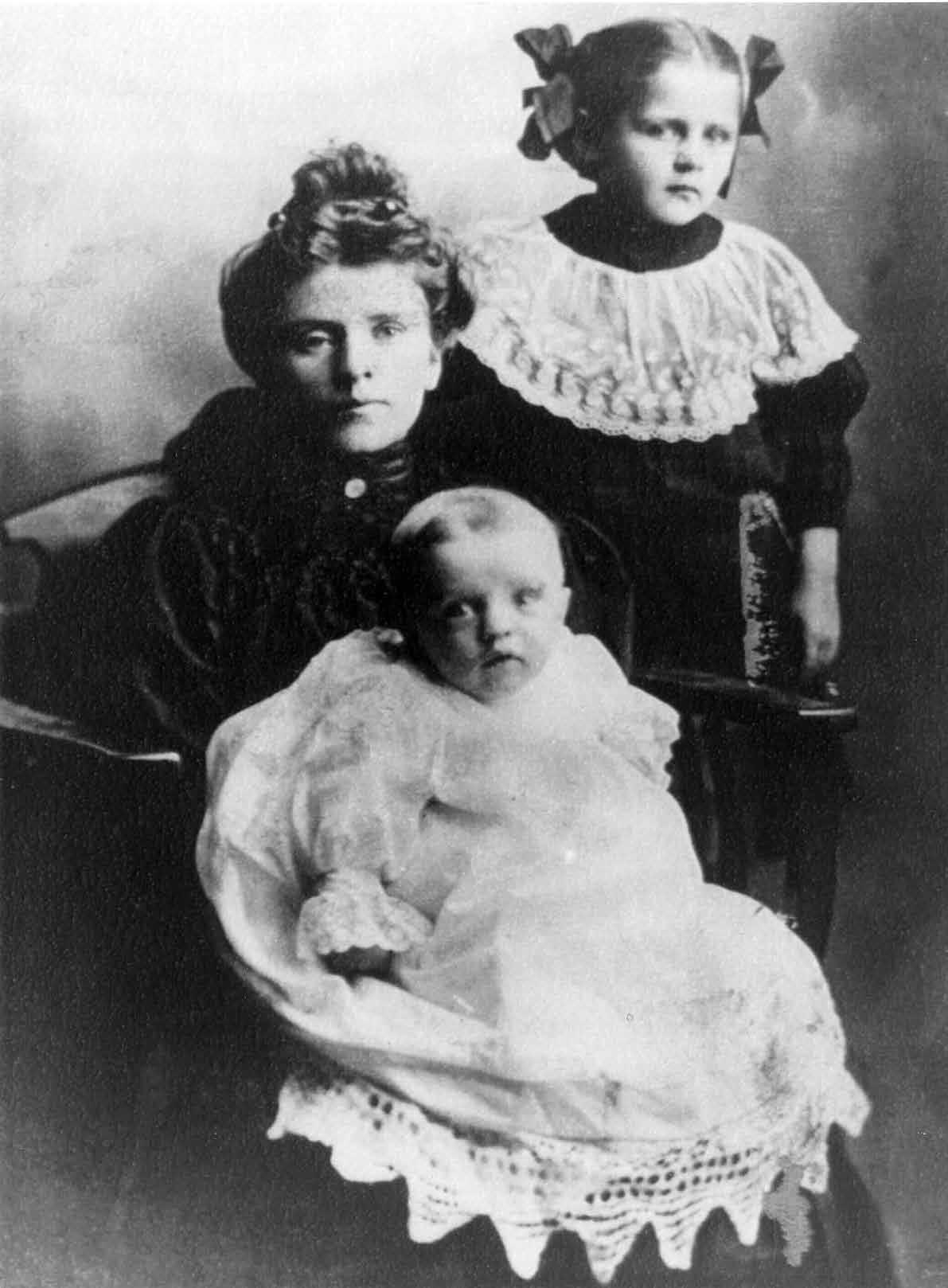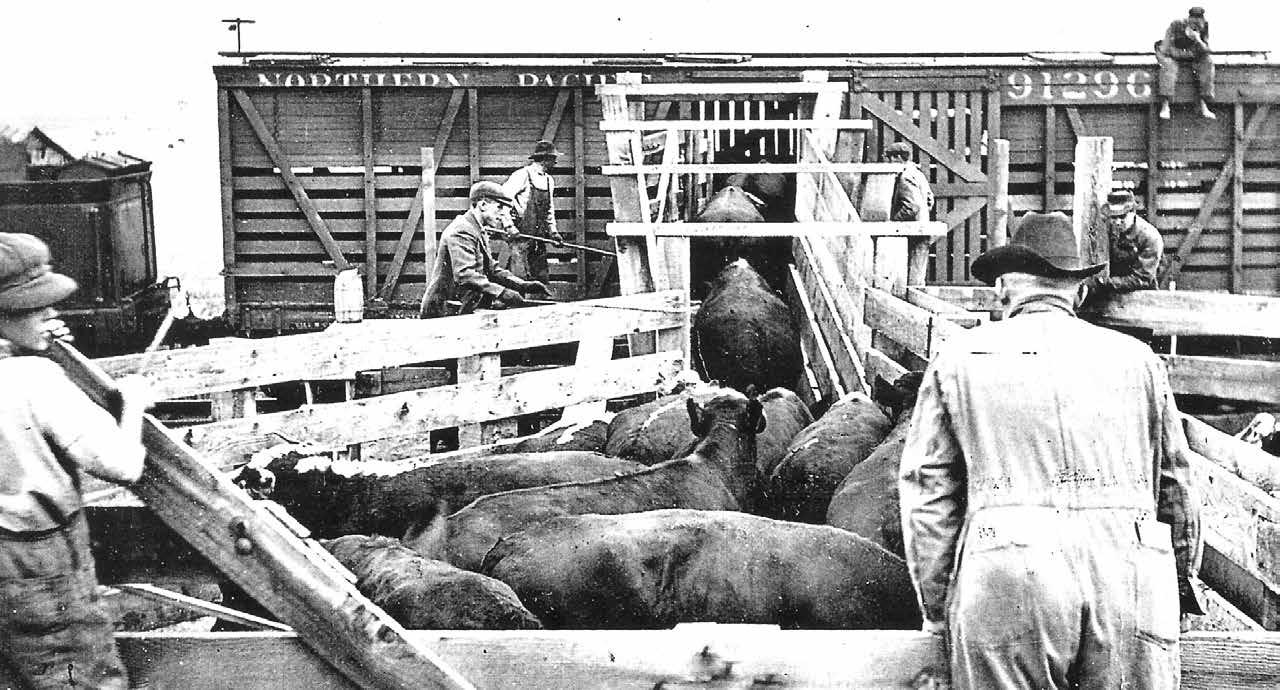
11 minute read
The Science of Sacred Memories: Nostalgia and Its Effects On Our Psychological and Social Health and Well-Being
By Clay Routledge
We live in an ever-changing technological world, and it is hard to keep up with the next big thing. Every time we purchase a new television, computer, or cellular phone we are acutely aware of the fact that we just bought a device that will be technically outdated and socially out of fashion very soon. For a long time I carried a basic cell phone on which I could make calls but no texting, no Internet. My students and my own children thought I was clinging to the past and needed to pull myself together and get with the times. To them, I might as well have been sending smoke signals or telegrams as a means of communication.
Advertisement
We seem to be living in the pursuit of the newest gadgets, fashions, diets, and exercise crazes, but is this characterization accurate? Consider what we do with much of this new technology that enamors us so. Our smart phones and tablets connect us to the Internet, and for many of us, this connection is a human one. Sure, we love being able to buy movie tickets online and instantly find the answers to those questions that once would have required a trip to the local library. But this technology also helps meet a need that is as old as our species— making a human connection. Email, instant messaging, and social media offer new ways to stay in touch with friends and family. Critically, the technology helps us keep alive the relationships from the past challenged by geographical distance and the hectic routines of modern living.
We love our compact and lightweight new mp3 players, but many of us use them to download and playlist classic songs from our youth. High-definition televisions are great, but we often use them to watch our favorite old movies now on Blu-ray. We enjoy living in the present and thinking about the future, but we also very much long to stay connected to our past. By nature, humans are nostalgic creatures. But why?
DEMONS, COWBELLS, AND THE LONGING TO RETURN TO THE WOMB
In 1688 the Swiss physician Johaness Hofer was concerned about what appeared to be an illness afflicting Swiss soldiers and mercenaries who had traveled from their Alpine homes to the plains of Europe to wage war in the service of European monarchs. Hofer coined the term “nostalgia” to describe this disease, from the root words: nostos (return to the native land) and algos (pain). Thus, nostalgia, as originally defined, is the pain caused by the desire to return to one’s native land. Hofer identified the symptoms of nostalgia to include sadness, anxiety, irregular heartbeat, insomnia, and disordered eating. He believed that nostalgia was a “cerebral disease” of demonic origin.
Other physicians of that era also viewed nostalgia as a neurological disorder but offered alternative, yet equally interesting, explanations of its etiology. For example, the German–Swiss physician J. J. Scheuchzer proposed that the condition may be caused by changes in atmospheric pressure that could drive blood from the heart to the brain, triggering a longing for home. Other physicians believed that the true culprit was the continuous clanging of cowbells in the Alps causing damage to the eardrum and brain.
By the mid-nineteenth century, nostalgia was no longer viewed as a uniquely Swiss ailment but could be experienced by anyone separated from and longing for home. For example, during the American Civil War, Union physicians reported thousands of cases of nostalgia among Union soldiers. A hundred years later, nostalgia was no longer considered a neurological disease but rather a mental illness similar to depression. Many psychologists of the time proposed that nostalgia was a subconscious desire to return to one’s fetal state. Regardless of how nostalgia was conceptualized through more than two hundred years of study, one thing was consistent: to be nostalgic meant to be ill.
HOMESICKNESS AND NOSTALGIA GO THEIR SEPARATE WAYS
Nostalgia’s negative connotation began to change toward the end of the twentieth century. Scholars were growing increasingly interested in the psychology of homesickness and discovered that lay people generally regarded nostalgia as distinct from homesickness. For most people, nostalgia was associated with warm feelings about persons, places, and events from the past. On the other hand, homesickness was associated with the unpleasant feeling of longing to return home. Homesickness was a problem, a source of stress and anxiety, while nostalgia was not. Psychologists then focused their energy on homesickness, viewing it as the true cause of suffering associated with longing for home.
While nostalgia was no longer perceived as a threat to mental health, it had yet to capture the interests of psychologists. If we accept that homesickness causes personal distress and is distinct from nostalgia, then what psychological effects does nostalgia cause, if any? No one knew because no one had systematically studied the psychology of nostalgia using modern empirical methods. In the 1990s, marketing researchers and consumer psychologists sparked a revival of interest in nostalgia. They observed that products and styles popular during an individual’s youth continued to influence personal preferences throughout life. In other words, consumer behavior appears to be influenced, in part, by people’s desire to stay connected to their past. People want to be reminded of days gone by. But why? Marketing research demonstrated that nostalgia influences what we spend our money on, but it did not shed light on the critical psychological question. What, if anything, does nostalgia do for people? It was not until 2006 that answers to this question began to appear.
THE NEW SCIENCE OF NOSTALGIA
As humans, we are attracted to novelty and susceptible to the social pull of keeping up with emerging trends, but we also appear to be grounded in the world of yesteryear. In a survey I observed that nearly 80 percent of university students report experiencing nostalgia at least once a week. College students are generally young and focused on present concerns, such as passing final exams, and future goals, such as having a successful career and finding a mate. Yet, the evidence indicates that most of them also regularly think about the past.
Other studies conducted by University of Southampton professors Constantine Sedikides and Tim Wildschut—both leading researchers in the study of nostalgia—similarly suggest that nostalgia is a very common experience across different ages and cultures. Whether it is going to see the reboot of a beloved film franchise at the local cinema, downloading our favorite songs from high school on iTunes, reconnecting with an old friend, or uploading childhood pictures on Facebook for Throwback Thursday, we are regularly seduced by the past. The critical question, again, is why.
For nearly ten years, I, along with a number of colleagues at universities around the world, such as Drs. Sedikides and Wildschut, have been studying the psychology of nostalgia with the goal of understanding how this sentimental longing for the past affects people. Does it have any positive functionality? Or is it inconsequential, neither good nor bad for us?
To begin to answer this question, my colleagues and I started with some relatively simple studies. We asked people to come into the laboratory and complete a nostalgia writing task. Specifically, we provided them with a dictionary definition of nostalgia and instructed them to bring to mind an experience from the past that makes them nostalgic and to spend some time writing about this experience. We then trained research assistants to code these narratives so that we could assess common features of nostalgic memories.
The results of these initial studies provided clues that nostalgia may be good for psychological health. Specifically, people were more likely to use positive, relative to negative, words in their narratives. Nostalgic narratives commonly appeared to focus on personally meaningful or cherished life experiences shared with close others, such as birthday celebrations, weddings, anniversaries, holidays, or vacations. In short, nostalgic memories appear to be happy memories that involve momentous life events experienced with loved ones. This poses the question: does revisiting the past via nostalgia lead to any positive outcomes in the present?
To answer this question directly, my colleagues and I have conducted and continue to conduct experiments assessing the psychological functions of nostalgia. In these studies, we begin by randomly assigning people to one of two conditions. In the first condition, participants are asked to write about an experience from their past that generates nostalgia. Those in the control condition are writing about something that happened very recently. In other words, all participants in the study are writing about autobiographical events, but only some of them are writing about experiences that trigger nostalgia, assuming that people are not going to feel nostalgic about something that happened in the very recent past.
Another method we commonly use to induce nostalgia is through music. In one group, participants listen to a favorite song from when they were younger, while another group listens to a new favorite song (one they have recently heard for the first time). Listening to either song is pleasurable, but only one of them transports the person back in time via nostalgia. After the participants complete the tasks, they complete questionnaires that assess a range of variables associated with psychological and social health. These include measures of positive and negative mood, self-esteem, feelings of belonging, perceptions of meaning in life, and optimism about the future.
This method allows us to consider three possibilities. If nostalgia is bad for you, then we would expect people in the nostalgia condition to exhibit lower levels of psychological and social health than people in the control condition. If nostalgia is inconsequential for psychological and social health, then we would expect to see no differences between the nostalgia and control conditions. And, if nostalgia is good for you, then we would expect people in the nostalgia condition to exhibit higher levels of psychological and social health than participants in the control condition.
In all of the research we have done to date, the evidence appears to be quite clear. Nostalgia is good for psychological and social health. When people write about experiences or listen to music that make them nostalgic, they subsequently experience elevated positive mood, heightened feelings of self-esteem, a greater sense of feeling loved or connected to others, increased belief that their lives are full of meaning and purpose, and a renewed sense of optimism about the future. In addition, nostalgia does not increase negative mood. Nostalgia also helps people cope with stress and makes them hopeful for the future. In short, nostalgia makes people feel good about themselves and their relationships.
Our recent studies further highlight the benefits of revisiting the past. In one study we recruited adult participants above the age of forty, and asked them to write about an experience from high school. In one group, they wrote about a mundane experience in their memory, and the second group described an experience that generated nostalgia. Then we asked participants how young at heart, youthful, and energized they currently felt. Finally, we asked them to complete a questionnaire assessing how physically healthy they felt and how optimistic they were about their future health.
The results were striking. People who thought about an experience from high school that made them nostalgic indicated feeling more young at heart, youthful, and energized than people who thought about a mundane (non-nostalgic) high school experience. In other words, it is not just thinking about youth or times past that makes people feel younger, it is thinking nostalgically about youth. In addition, in this study, we found that this nostalgia-induced perceived youthfulness led people to feel healthier and more optimistic about their future health. Nostalgia appears to be a psychological fountain of youth.
Other studies also indicate that nostalgia not only makes people feel better about themselves, it also makes them behave in a more prosocial manner. For example, after an experience of nostalgia, people donate more money to charity; they are more likely to help someone in need; and they are more interested in making new friends. By boosting psychological health, nostalgia makes people more socially conscious citizens. The benefits of nostalgia thus extend beyond the individual.
THE FUTURE OF THE PAST
I finally broke down and bought a smart phone. I put up a good fight but I suppose it was time. As a species, part of how we thrive is by pushing forward, striving to improve ourselves and the world around us. Yet, as historians are happy to remind us, we should never forget the past. Psychologists are now beginning to understand that we can also reap benefits from reflecting on our own pasts. Through nostalgia, we can revisit the events from our past we cherish most and that remind us that we are loved. Recalling the past gives us the comfort and reassurance we need to take on present challenges and pursue future opportunities.
DR. CLAY ROUTLEDGE is a social psychologist and associate professor of psychology at North Dakota State University. He is a leading expert on the psychology of nostalgia and the psychology of existential meaning. He regularly publishes his work in the top psychology journals. Dr. Routledge recently co-edited a book on the scientific study of meaning in life and has written a book on the psychology of nostalgia (forthcoming). His work has been featured in The New York Times, CBS News, BBC News, CNN, and Men’s Health, and other outlets. He also writes the popular blog “More than Mortal” for Psychology Today and has served as a guest blogger for Scientific American.










